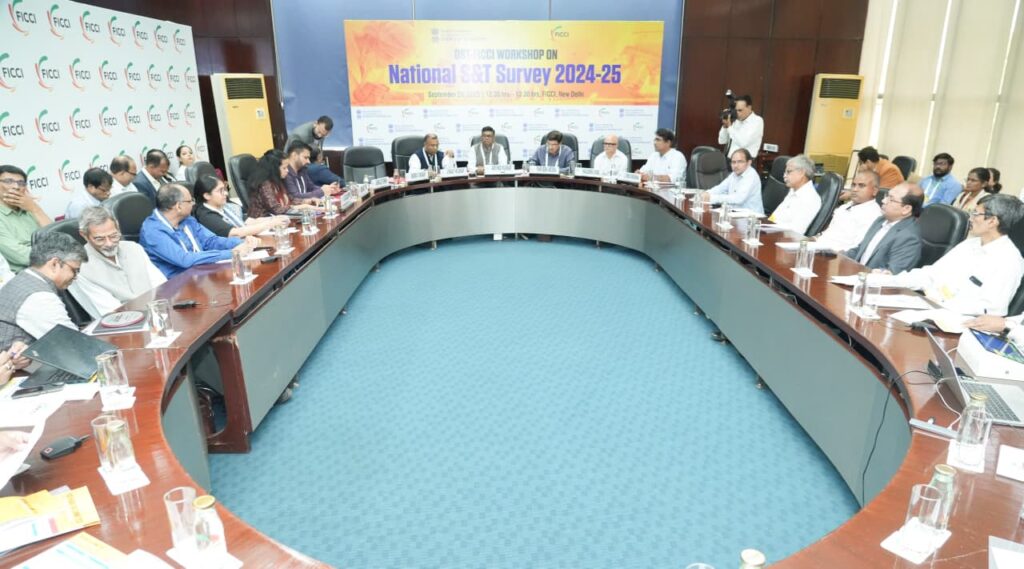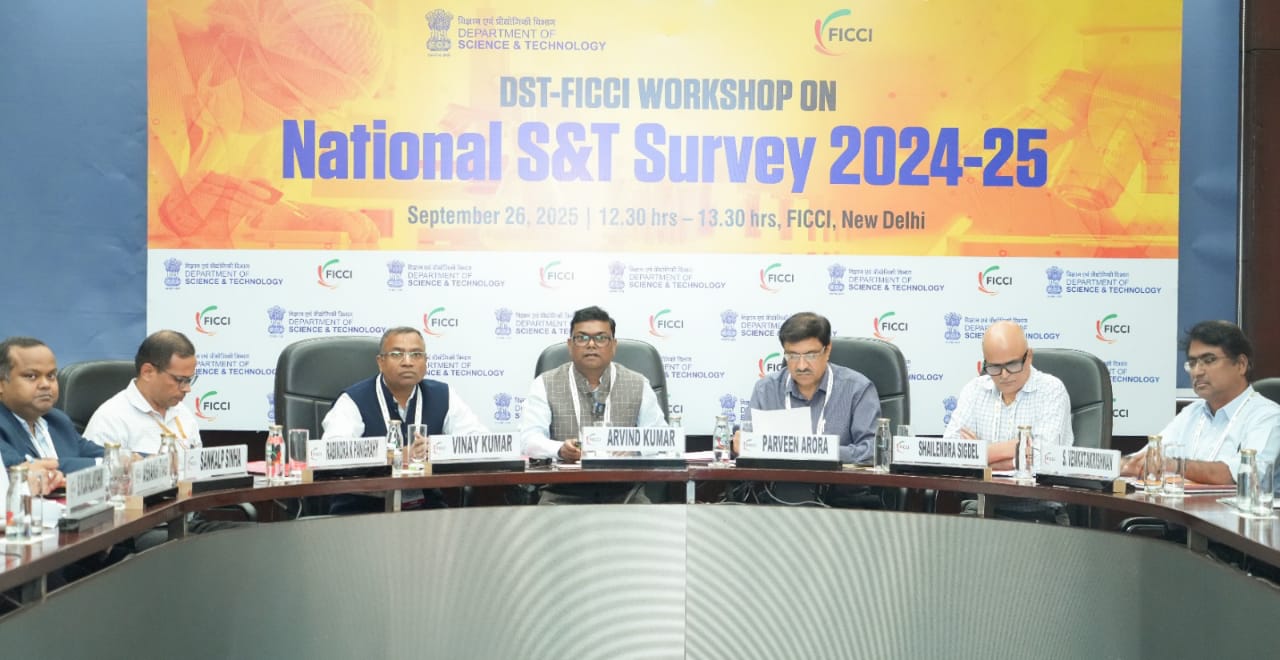New Delhi, The Department of Science and Technology (DST), in collaboration with the Federation of Indian Chambers of Commerce and Industry (FICCI), hosted a high-level workshop to discuss the National Survey on Resources Devoted to Scientific and Technological (S&T) Activities for 2024-25. The event emphasized the critical role of the private sector in strengthening India’s science, technology, and innovation ecosystem through robust data sharing.
Stakeholders from government, industry, research institutions, and international organizations highlighted the importance of high-quality data for evidence-based S&T policymaking. Dr. Arvind Kumar, Advisor and Head of the National Science, Technology & Management Information System (NSTMIS) at DST, urged industrial organizations to actively participate in the survey, stressing that strong response rates and data integrity are key to its success.
Dr. Kumar noted that while India’s gross R&D expenditure has more than doubled from ₹60,196.8 crore in FY2010-11 to ₹127,381 crore in FY2020-21, the private sector’s contribution remains at 36.5% of total R&D spending, compared to 70-75% in advanced economies. India’s R&D investment currently stands at 0.64% of GDP, though absolute expenditures have risen consistently. He highlighted the proposed ₹1 lakh crore Research, Development & Innovation (RDI) Fund, designed to provide long-term, low-cost financing for private firms and startups in sectors like AI, robotics, quantum computing, and medical devices to boost corporate R&D contributions.

Shri Vinay Kumar, Head of the Industrial R&D Promotion Programme (IRDPP) at the Department of Scientific and Industrial Research (DSIR), underscored the government’s efforts to promote industrial R&D. He pointed out that of India’s 300,000 registered firms, only 40,000 are captured in the CMIE database, urging companies to view data submission as a national duty.
Shailendra Sigdel, Regional Statistical Advisor at UNESCO Institute for Statistics, emphasized the need for incentives and adherence to international standards like the Frascati Manual, warning that poor data quality undermines survey outcomes. Dr. Praveen Arora, former NSTMIS Head, called for simplified survey tools to encourage private sector participation while addressing concerns about competitive exposure.
Industry leaders also shared insights. Shri Sankalp Sinha of IBM India noted India’s progress toward global R&D benchmarks despite low per capita GDP, advocating for clearer R&D reporting definitions and transparent survey results. Shri S. Venkatakrishnan of Forus Health stressed the need for long-term investments in high-impact domains, with reliable data guiding both policy and industry growth. Mr. Ayekansh Tyagi of Mankind Pharma proposed linking data submission to grant eligibility and using student interns for data collection, citing China’s use of fiscal incentives as a model.
The workshop concluded with a consensus that enhanced private sector engagement and data quality are vital for evidence-driven policies and achieving India’s innovation and development goals.
National S&T Survey 2024-25
Conducted by DST’s NSTMIS, the survey collects data on S&T activities, primarily R&D, from approximately 8,000 organizations, including public and private sectors, MNCs, higher education institutions, SIROs, and NGOs. Using a web-based platform with unique login credentials for authenticity, the survey gathers data on expenditure, manpower, and general S&T activities, adhering to international standards. The resulting reports provide critical R&D indicators for policy formulation and national S&T assessment.

No Responses